King Charles III's Power: Challenges, Barriers and Little-Known Privileges
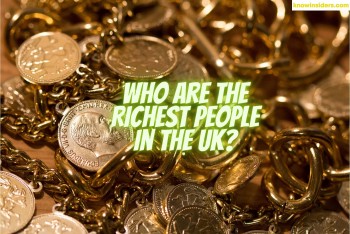 The Full List of British Billionaires In 2023 - Who Are The Richest People In The UK? The Full List of British Billionaires In 2023 - Who Are The Richest People In The UK? |
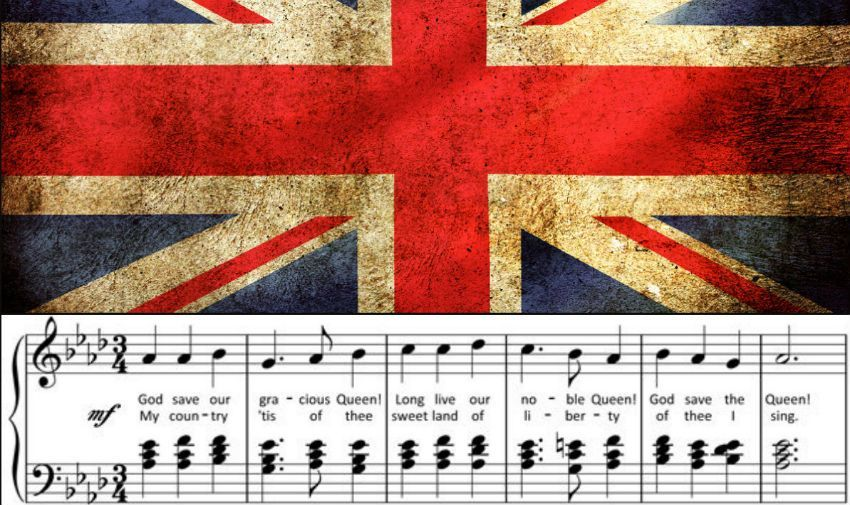 British National Anthem: Full Lyrics and History of "God save the Queen" British National Anthem: Full Lyrics and History of "God save the Queen" |
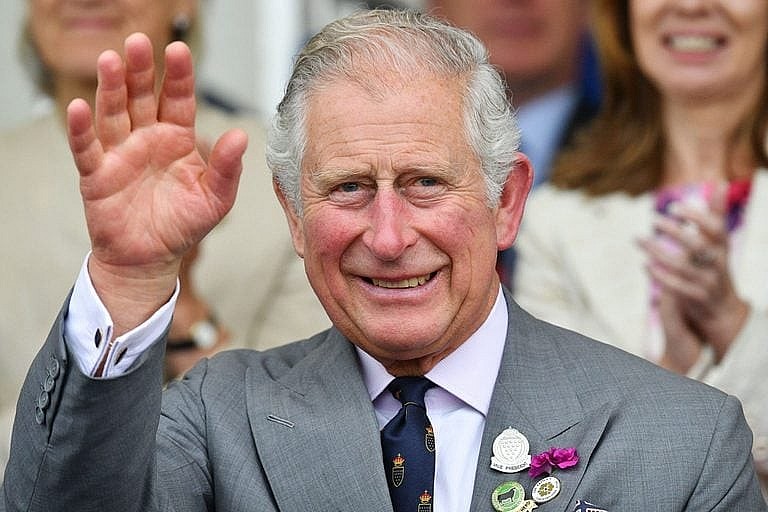 |
| Powers of King Charles III |
| Contents |
Following Queen Elizabeth II's position as head of the British Royal Family, what power does King Charles III still hold?
The Little-Known Privileges of King Charles III
King Charles III is ineligible to vote and hold public office. The King must act impartially in his capacity as head of state.
However, the British monarch will continue to hold weekly meetings with the prime minister, attend the beginning of Parliamentary sessions, and approve legislation.
The British king or queen does more than only control the populace. White swans in the seas of England and Wales have been regarded as the King's property since the 12th century. In British waters, the same regulation also applies to sturgeon, dolphins, and whales.
King Charles III will have a poet of his own when he takes the throne. The UK selects a poet every ten years to perform for the Royal Family at important occasions. This dates back to the 17th century.
Break the law without prosecution
The British common law, which previously maintained that the sovereign, being divinely appointed, is not capable of doing wrong, is claimed to have given rise to the idea of sovereign immunity. All British legal proceedings are conducted in the king's name vs the defendant because of the concept of sovereign immunity, which implies that the king cannot sue himself. And indeed, such is the situation. The sovereign cannot be subject to civil or criminal procedures under U.K. law, according to the royal family's official website.
Pardon criminals
The ability of a British king or queen to pardon criminals is known as the "royal prerogative of mercy," yet a 2017 House of Commons briefing document does not list this particular power as one of the king's reserved powers. In the current United Kingdom, which long ago abolished the death penalty, the royal pardon is rarely utilized. Its original purpose was to stop the execution of a criminal.
It's not all life or death, though. The royal pardon is a tool the king can employ to lighten a prisoner's sentence. As an illustration, Queen Elizabeth used it in 2013 to pardon World War II codebreaker Alan Turing, who was convicted of indecency in 1952.
Drive without a license
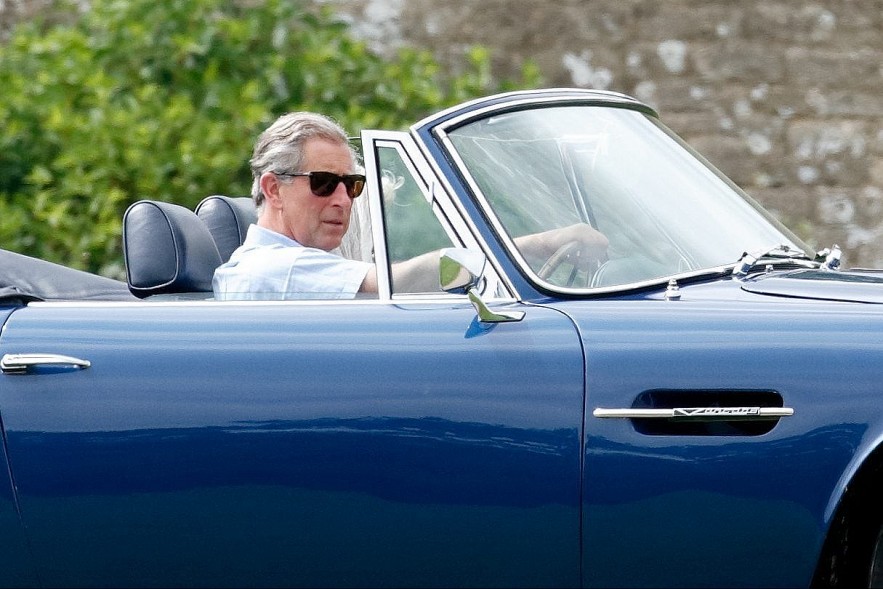 |
| Drive without a license |
Charles is no longer legally obliged to get a driver's license in order to drive as he pleases now that he is king. How come that? Technically speaking, the king's name appears on every driver's license. The king is also immune from needing to have a license plate shown on his state vehicle.
Travel without a passport
According to the royal family's official website, King Charles will no longer need to travel with a passport because British passports will now be issued in his name. However, this cannot be said of any other royal family member. All other family members, including newly-crowned Princess Kate and Prince William, have passports. King Charles also has the authority to revoke passports, which is a fun fact.)
Head of the Commonwealth of Nations
After the coronation ceremony on May 6, King Charles III officially became the heads of 14 countries under the parliamentary monarchy of the "Commonwealth realm". And the king of England isn’t just the king of England. He’s also the king of Scotland, Wales and Northern Ireland, which join England to make up the United Kingdom.
You must take into account all nations impacted by the king's rule in order to adequately respond to the question "What does the king of England do?" A voluntary group of around 54 independent countries, the Commonwealth of Nations promotes collaboration among its members and advances their economic and social interests.
The majority of the members are currently or previously under British authority, including Barbados, India, Pakistan, and the Commonwealth nations. Rwanda and Mozambique are also members of the Commonwealth of Nations, although having no prior connection to the monarchy in either country.
The king meets every two years with the heads of state and government of the Commonwealth of Nations to debate concerns, set priorities, and execute policies in his capacity as the organization's head. Since the United Kingdom has now formally left the European Union, its relations with the other Commonwealth countries are more important than ever. Learn how Prince Philip and Queen Elizabeth II met and fell in love.
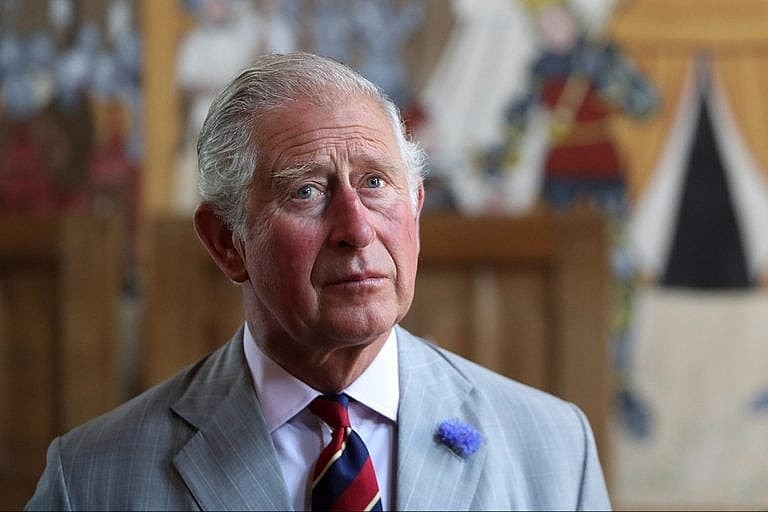 |
| King Charles III Serve as head of the Commonwealth of Nations |
The coronation comes at a time when some members of the Commonwealth are rethinking their relationship with the British monarch.
Among them, Barbados was the first to revoke Queen Elizabeth II's status as head of state and declare it a republic in 2021.
Moreover, the wave of events in the British political world in recent years, such as Brexit and many changes of Prime Minister, have negatively affected the UK's position in the world.
Therefore, King Charles III is expected to face many difficulties on the way to restore Britain's international prestige in the near future.
One of the steps King Charles III could take after his coronation was to enhance the country's soft power as a diplomat.
So in addition to possessing diplomatic power, what other powers does King Charles III hold?
The King's Role in a Constitutional Monarchy
In a monarchy, the head of state belongs to the King or Queen. However, with the constitutional monarchy, the legislative power is vested in the Parliament, not the King.
In the British system of government, the King holds only some symbolic power. For example, a bill of Parliament is only officially enacted after it has been approved by the Royal side.
In practice, though, no King has refused to pass a Parliament bill since 1708. During Queen Elizabeth II's reign, more than 1,000 bills were passed by her.
Upon taking office, King Charles III will assume a number of representative duties. For example, making foreign visits and receiving heads of state.
Besides, the King is not legally obligated to pay income tax or inheritance tax, meaning that King Charles III will inherit a huge fortune from Queen Elizabeth II.
The King's Role in Parliament
As is customary for a general election, the King will accept the resignation of the outgoing Prime Minister and then appoint a successor to form a new government in his name.
However, if no political party wins a majority of seats in the House of Commons, the King does not have the authority to conduct the ceremony. Because the appointment of the Prime Minister falls under the official authority of the party that wins the majority of votes in the House of Commons, not in the hands of the Royal Family.
In that case, the formation of the government will be temporarily led by the incumbent Prime Minister until a new Prime Minister is found.
An incident related to this practice took place in 2019, when Boris Johnson tried to entice the British Royal Family to participate in an illegal election before Parliament, but was discovered by the Supreme Court.
Nominate individuals for the House of Lords
The king appoints members of the House of Lords, one of the three parts of parliament, with the prime minister's consent. His choice is based on the expertise and experience he believes each candidate will bring to the table in terms of U.K. business, culture, science, sports, academics, law, education, health, and public service. The House of Lords shares responsibility for all legislative tasks with the House of Commons.
Appoint justices to the Supreme Court
In the United Kingdom, the Supreme Court is the highest court. The U.K. Supreme Court, like the U.S. Supreme Court, has the final say in all legal problems that are brought to its attention, including how laws are to be read and whether a statute should be revoked by parliament. The king has the essential role of selecting the justices who will be making such choices. According to the BBC, he picks justices on the opinion and suggestion of a committee of legal experts from each of the U.K.'s nations.
Annual session of open parliament
According to royal custom, the king (formerly the queen) always declares the start of the annual session of parliament. The opening of parliament has never before been purposefully delayed by the monarch. She only ever handed off responsibilities to others while she was pregnant.
Laws' Justification
Despite the fact that the king must provide his royal assent before a proposed act of parliament can become law, even though parliament has the authority to create, amend, and repeal laws. Therefore, even though the king is obligated by the constitution to maintain his political neutrality, he has the right to veto any proposed laws. However, since 1708, no British king or queen has refrained from endorsing a parliamentary act. Additionally, the majority of kings and queens, including the late Queen Elizabeth II, don't even appear in person to grant royal assent. Queen Victoria did so most recently in 1854.
Close of the legislative session
The king has the authority to adjourn the present session of parliament. The formal end of the session is referred to as the dissolution of parliament, which is distinct from this. The king also had the authority to dissolve parliament prior to the passage of the Fixed Term Parliament Act of 2011. This was last accomplished by a monarch in 1830, Queen Victoria.
Power of the King over the Prime Minister
Even though the king only retains a limited number of reserved powers (decisions that fall under the "royal prerogative"), they remain significant. Consider his ability to designate the prime minister, who is the chief executive of the United Kingdom. However, he cannot choose a PM at random. He must abide by the Cabinet Manual, a codified set of guidelines that stipulates that the sovereign should avoid getting involved in party politics.
He typically chooses the party leader whose supporters obtained the majority of seats in the House of Commons, a chamber of parliament, in the most recent general election. The king's top objective is to keep out of politics, although there are times when he might need to use his discretion, including when a prime minister passes away or resigns while still in office. By the way, the value of the British crown jewels is listed below.
After the Prime Minister takes office, the King will deliver the opening address to Parliament and this speech will be commented on beforehand by the Prime Minister.
Legally, the King can remove the Prime Minister, but no similar decision has been made since 1834, when King William IV removed Prime Minister Lord Melbourne and appointed Robert Peel to form the government. new government.
Robert Hazell, professor of government and constitution at University College London, told The Guardian that the King could remove the Prime Minister if he refused to resign even after a vote of no confidence. mandated by the legislature. However, the King will only carry out such an order if the House of Commons has appointed a new Prime Minister.
Summon the prime ministerKeeping up with developments in the government is one of the king's duties. He can accomplish this by using his authority to call audiences (meetings in royal lingo) with the prime minister. He has a right and a responsibility to voice his ideas during these discussions about concerns of government. Due of the audience's perceived privacy and the rigorous confidentiality of all messages, the practice does not conflict with the king's need to maintain political neutrality. In addition, the king follows his ministers' recommendations after expressing his own opinions. |
The Role of the King in UK Religion
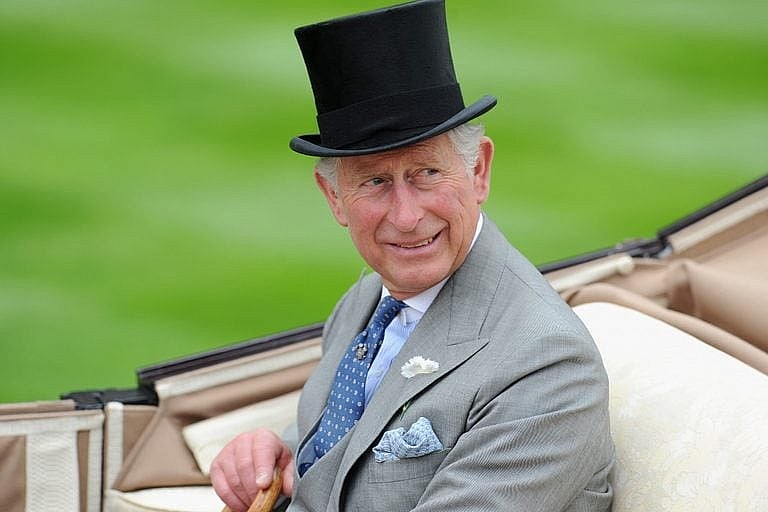 |
| What powers does King Charles III have |
Anglicanism is recognized as the state religion, so nominally, the King of England has the constitutional title of Supreme Leader of the Church of England and receives the title Defender of the Faith.
The title "Guardian of the Faith" first appeared in 1507, when King James IV of Scotland was made a Defender of the Christian Faith by Pope Julius II.
In 1994, this title became the subject of controversy. At that time, Prince Charles made a statement that caused a stir when he said that he would be a "defender of faith" and not a "defender of the faith". Faith").
By this, he is implying that modern Britain is a convergence of religious diversity, and no longer revolves around Anglicanism or Christianity.
Appoint archbishops and bishops to the Church of England
King Charles III is referred to as "His Majesty," but his full name is "Charles the Third, by the Grace of God, of the United Kingdom of Great Britain and Northern Ireland and of His other Realms and Territories, King, Head of the Commonwealth, Defender of the Faith." The phrase "Defender of the Faith" in the final phrase refers to the king as the supreme head of the Church of England.
Since 1534, when Henry VIII renounced the Catholic Church as a result of his divorce drama, the British monarch has served as the head of the Church of England. The king, who currently serves as the head of the church, names archbishops, bishops, and deans of the Church of England, though he does so on the prime minister's recommendation.
King Charles III's Power in Armed Forces
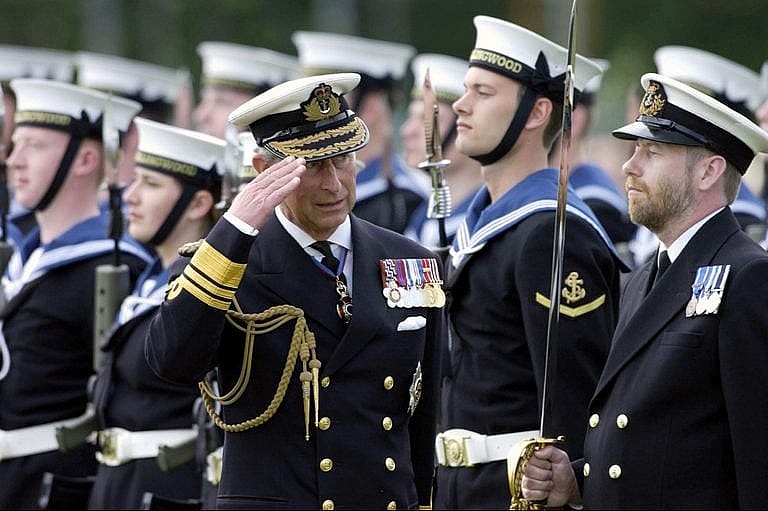 |
| Command the armed forces |
King Charles III is the head of the armed forces, according to the royal family website, because he is the sovereign. King Charles enlisted in the military and served in the Royal Air Force and Royal Navy.
He is one of several royal family members who have served in the British Armed Forces. His mother, Queen Elizabeth, was the first female member of the royal family to enlist in the Auxiliary Territorial Service in 1945. Prince Philip, his father, was a Royal Navy commander. Prince Harry and Prince William, two of his sons, also served in the British Army while Prince William served in the Royal Air Force and Royal Navy.
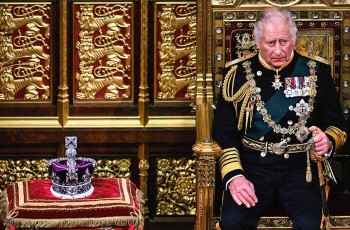 How Rich Is King Charles III: Fact-Check About £1.8 Billion Wealth How Rich Is King Charles III: Fact-Check About £1.8 Billion Wealth How Rich Is King Charles III? King Charles III owns a personal fortune of more than 1.8 billion pounds, including real estate, car collections, jewelry, ... |
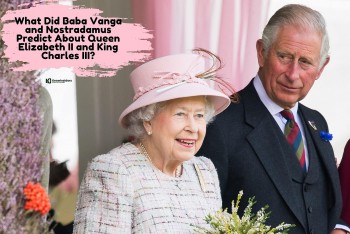 What Did Vanga - Nostradamus Predict for King Charles III? What Did Vanga - Nostradamus Predict for King Charles III? Baba Vanga and Nostradamus of the Balkans, the two blind mystics, have caught attention again recently thanks to their accurate predictions about the Queen Elizabeth ... |
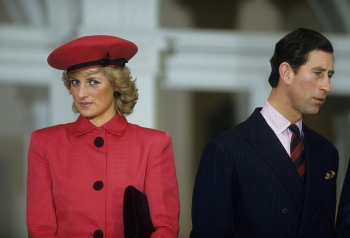 Little-Known Facts About King Charles III: Biography, Personal Life, Royal Family and Career Little-Known Facts About King Charles III: Biography, Personal Life, Royal Family and Career Queen Elizabeth II has died and her eldest son Charles has become the oldest King to assume the British throne. Who is King Charles III? ... |























